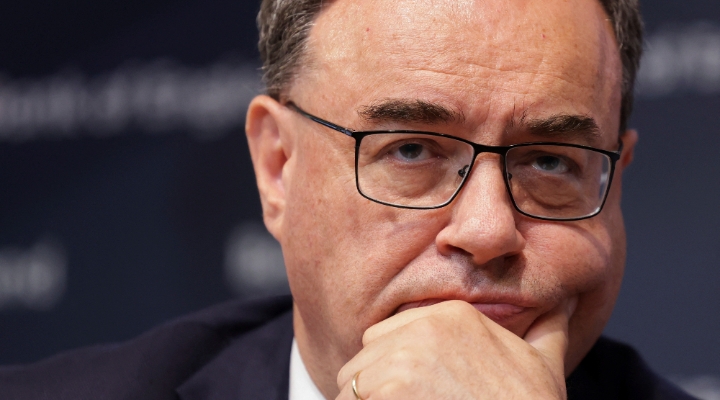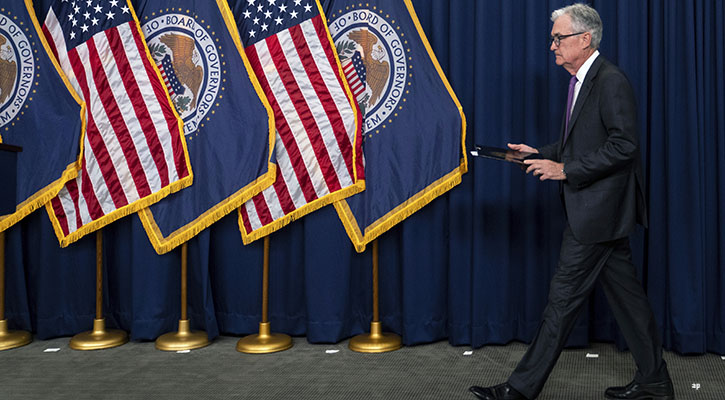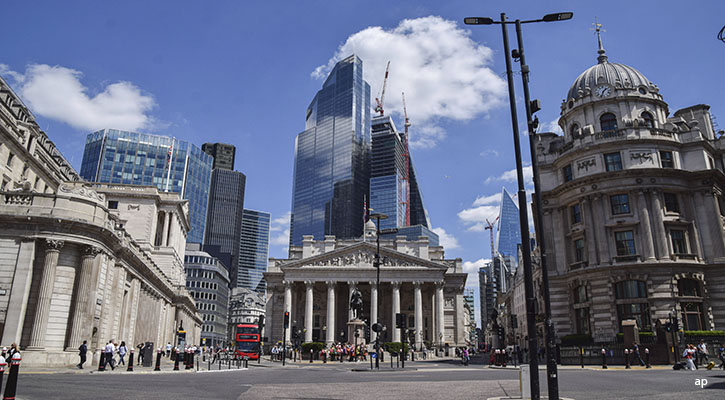
The Bank of England (BoE) has raised its bank rate by 0.25%, bringing interest rates to 5.25%. The move is its 14th successive hike.
Announcing the move at noon today, the BoE said its Monetary Policy Committee (MPC) had achieved a rough consensus on the need to hike. Six members had voted for a 0.25% increase, two had opted for another 0.50% increase, while one member voted for no change.
However, it also signalled that it would continue to raise rates if economic indicators pointed to further inflationary pressure on the UK economy.
"Given the significant increase in bank rate since the start of this tightening cycle, the current monetary policy stance is restrictive," it said.
"The MPC will continue to monitor closely indications of persistent inflationary pressures and resilience in the economy as a whole, including the tightness of labour market conditions and the behaviour of wage growth and services price inflation.
"If there were to be evidence of more persistent pressures, then further tightening in monetary policy would be required. The MPC will ensure that Bank Rate is sufficiently restrictive for sufficiently long to return inflation to the 2% target sustainably in the medium term, in line with its remit."
The BoE's projections, which have been the subject of much gnashing of teeth among economists, politicians and commentators, now point to 5% inflation by the end of 2023.
"CPI inflation remains well above the 2% target. It is expected to fall significantly further, to around 5% by the end of the year, accounted for by lower energy, and to a lesser degree, food and core goods price inflation. Services price inflation, however, is projected to remain elevated at close to its current rate in the near term," it said.
"In the MPC’s August most likely, or modal, projection conditioned on market interest rates, CPI inflation returns to the 2% target by 2025 Q2. It then falls below the target in the medium term, as an increasing degree of economic slack reduces domestic inflationary pressures, alongside declining external cost pressures."
Prime minister Rishi Sunak has previously promised to "halve" inflation by the end of the year, a promise that has placed a straitjacket around UK government policy. Under pressure to help deliver on the commitment, the Bank hiked rates by 0.50% on June 22.
Reacting to today's news, commentators accused the BoE of "walking a tightrope", and noted that the future rate rises priced in by markets may in fact not be necessary.
"Even with inflation coming down faster than forecast recently, this may not be the end of the BoE’s action," says Quilter Investors' chief investment officer Marcus Brookes.
"Yes, the interest rate rises we have seen to date are beginning to have an effect, but it is not certain that it is enough yet to get inflation back to the 2% target the BoE operates to. As such, we may need to expect another rise later this year.
"That said, interest rates probably don’t have to go as high as the market is predicting, currently somewhere above 6%. The UK economy and consumer have been incredibly resilient but are clearly now beginning to be hit. Inflation is falling and should continue to do so for the rest of the year, even if not to that magic 2% number. The next few sets of inflation data will be crucial to see just what impact the BoE has managed to have and what is still likely to come.
"The BoE is walking a tightrope at this stage, where the interest rate rises we have seen could tip the UK economy into recession."





























